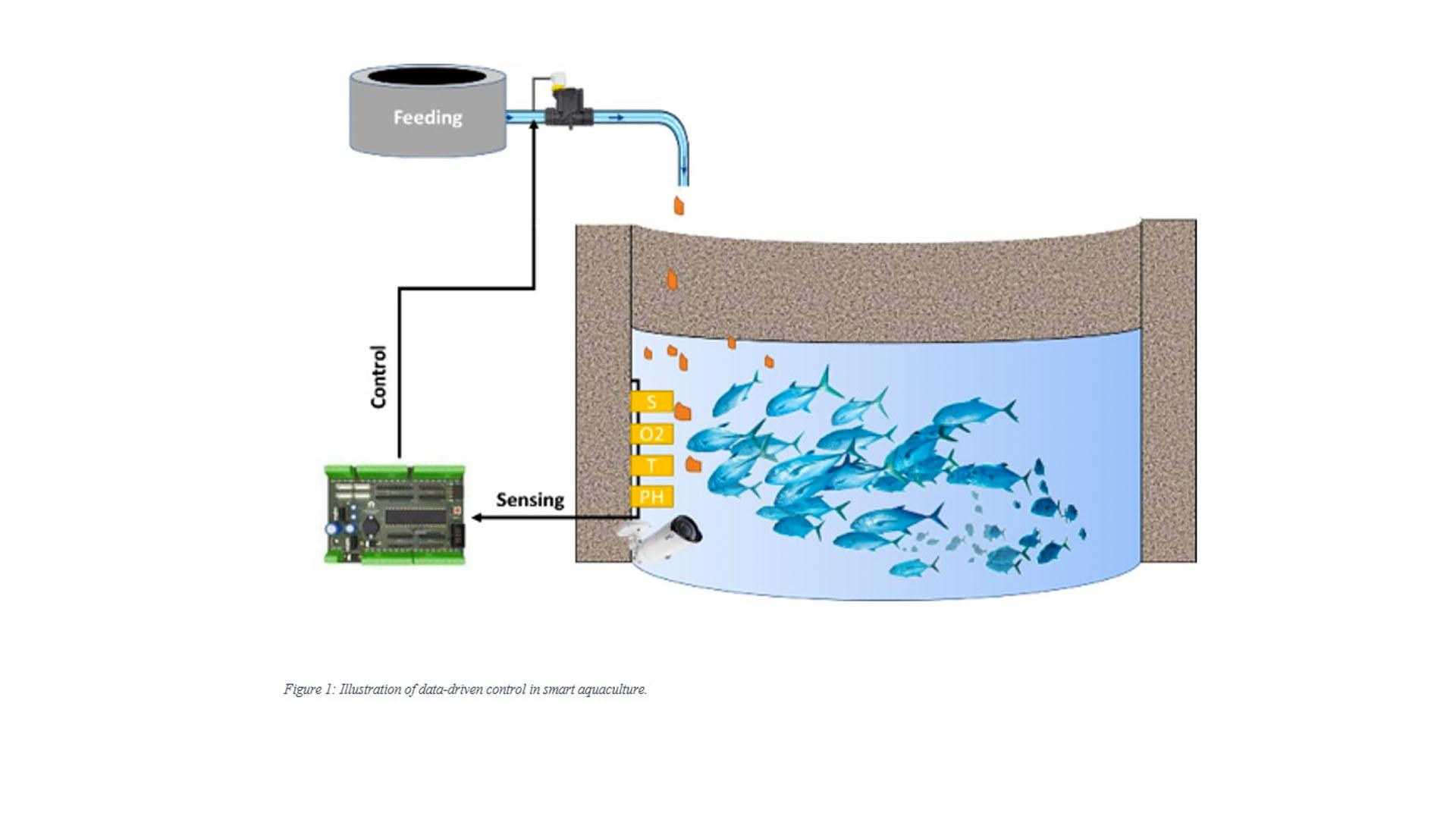Fisheries play a vital role in global food supply and are becoming key components in countries’ economy.
However, the optimal management of fish production is crucial to ensure economic efficiency of aquaculture. It is known that fish growth rate depends on external environmental conditions, which include food and water quality but also on the fish’s internal physiological and health situations. This project aims at studying the interaction between these internal and external factors and predict the effect of fish behavior on the production quantity and quality. The information on the fish behavior is used to feed the control and monitoring system, which controls the feeding process, regulates the water temperature, monitors the oxygen concentration …etc. Overfeeding of fish incurs the cost of wasted food but also adversely impacts the water quality and increases routine maintenance and cleaning costs. In an ideal system, delivery of feed would be optimized as a response to specific fish behaviors indicative of specific hunger or energy levels.
Investigator:
